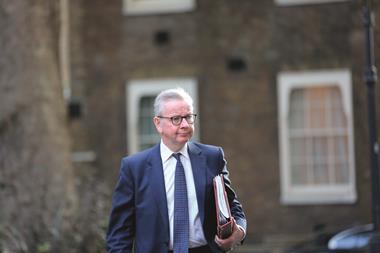By Linda Boateng, associate in the real estate team at Russell-Cooke

The festive season is here and Christmas markets are going up in the four corners of London and in towns and cities across the UK.
Temporary market stalls and the related trend of pop-up shops and restaurants are an increasingly popular way to revitalise unused buildings and land, offering retailers the advantage of setting up shop with lower overheads and landowners the possibility of maximising under-used sites.
However, many seasonal markets are governed by Planning laws and regulations which you should consider before you get going.
Permitted development rights allow a market to operate for 14 days in any one year without the need for planning permission. However during the festive period, it’s likely retailers will want to operate for more than 14 days in order to maximise profits, in which case anything longer than 14 days will require planning permission from the local planning authority.
You will also need planning consent if your market will be inside or within the curtilage of a building, if it is a material change of use of that land or if permanemt or semi-permanent structures will be erected onto the land.
Making an application for planning permission for a Christmas market needs thought. At a minimum, your planning application form should be submitted with existing and proposed application drawings, a site location plan and a design and access statement. However, an application that offers to set limits on the opening hours, noise levels, access, parking, waste and recycling, alongside evidence that local planning policy has been considered is more likely to be approved.
Further, consider whether the market is located in a place of a particular historic interest, in which case a heritage report would be a helpful addition to the application. An unrestricted planning application is likely to generate a number of planning objections, particularly if the stalls are close to existing residential dwellings.
Revert back after Christmas
Exeter’s Christmas market previously faced objections due to the impact of the market on the views of the city’s historic cathedral. Exeter City Council eventually granted planning permission with conditions, including that the Cathedral surroundings are returned to their former condition once the market is finished. The council has most recently granted planning permission for the markets to run for 30 days a year, for up to 5 years.

So, what happens after Christmas?
Usually, planning permission is required for any material change of use to land and buildings howver, landowners should note that where planning permission is granted only temporarily such as for Christmas markets, permission is not required to revert the land back to its former use after the festivities are over.
For retailers, the expiry of a planning permission doesn’t mean the business cannot continue and it is worth exploring renting flexible short term space in serviced offices or operating from home. You do not need planning permission to operate from home if the business is ancillary and the key test is: is it still mainly a home or has it become business premises?
If it is not ancillary, there is a risk of enforcement action by the local planning authority. If you are in doubt you may apply to the local planning authority for a Certificate of Lawful Use for the proposed activity, to confirm it is not a change of use and still lawful. If you need further guidance, Russell –Cooke’s specialist planning lawyers would be happy to assist. The firm can also advise separately on licensing and business start-ups.






























No comments yet